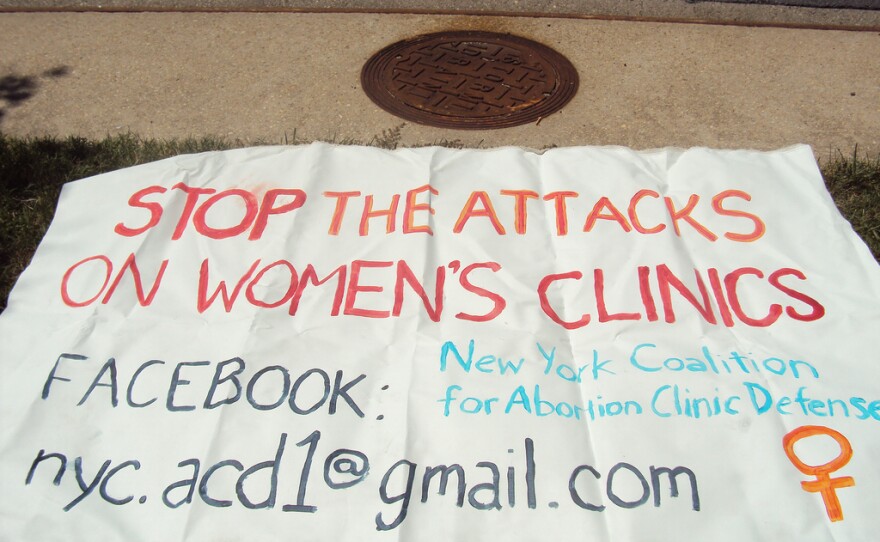Saying that a Massachusetts law creating a 35-foot buffer zone around abortion clinics is unconstitutional, the Supreme Court rules that the law is too broad.
Its backers have said the law treats groups equally, requiring both supporters and opponents of abortion rights to maintain their distance from the clinics. But in a unanimous decision, the court said that establishing the buffer zone the way Massachusetts has is a presumptive act that infringes on First Amendment rights.
From the law experts at SCOTUSblog:
"The upshot of today's ruling is that an abortion clinic buffer zone is presumptively unconstitutional. Instead, a state has to more narrowly target clinic obstructions. For example, the police can tell protesters to move aside to let a woman through to the clinic. But it cannot prohibit protesters from being on the sidewalks in the first instance."
The justices' opinion also suggests alternatives for helping clinics protect their patients and staff from harassment, including obtaining court orders.
When the case was argued before the justices back in January, NPR's Nina Totenberg noted that buffer zones have become common since the Supreme Court upheld their use 14 years ago.
Today's ruling on buffer zones was announced on the heels of another long-awaited decision, over the president's power to make recess appointments.
Copyright 2014 NPR. To see more, visit http://www.npr.org/






